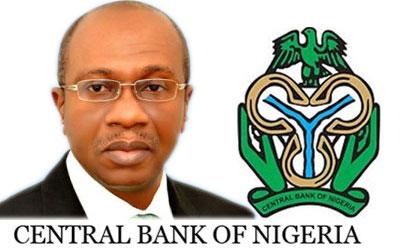
Nigeria’s foreign reserves have risen to $28.9 billion as at Tuesday, January 24, 2017 driven by oil price increase and relative stability in the Niger Delta, according to Godwin Emefiele, governor of the Central Bank of Nigeria (CBN).
Emefiele disclosed the new position of the nation’s external reserves even as he ruled out, in strong terms, any possibility of tweaking the current foreign exchange policy.
While briefing the media at the end of the Monetary Policy Committee (MPC) meeting yesterday, 24 January, he assured that the CBN would continue to operate its ‘managed float’ exchange rate system, which allows it to intervene in the market as the need arises.
He said the CBN was “hoping” that such interventions would spur supply, especially at the interbank market and discourage people from patronising the moneychangers in the black market.
Emefiele disclosed that rising oil prices have seen foreign exchange inflows through the CBN rise by well over 82 percent, while foreign reserves which had dropped to lowest levels last year have peaked to $28.9 billion.
While acknowledging the positive increase in foreign reserves, Ike Chioke, managing director, Afrinvest (West Africa) Limited was concerned that Nigeria is not paying its bill.
“There has been a positive accretion in foreign reserve, at the same time we are not paying our bill. In terms of forward provision, at the last count, we have about $4 billion of unsettled forward contracts. If we are to settle that immediately, that will take about $4 billion from the external reserve and its back to less than $28 billion without including the new demand for dollars this month, quarter and the rest of the year”, Chioke said.
“The challenge is that we have not got to the ideal situation where there is enough confidence built into the country. Our governance framework, our policies and economic turnaround plan that investors find opportunity to come into the country”, he added.
Crude oil prices have stayed above $50pb throughout 2017, and closed the period at $55.4pb on January 16th. Current prices are 86.5 percent higher than a year ago of $29.7pb. Crude oil accounts for more than 90 percent of Nigeria’s foreign exchange earnings.
External reserves have been on the increase since October 21, 2016.This trend is expected towards the end of January as foreign exchange inflows gradually gain momentum. Risks to the rising external reserves, according to analysts, include stalled or disappointing borrowing plans and further disruptions to Nigeria’s oil production.
The naira currency on Tuesday, 24 January closed at N305.50 per dollar, the same level it closed on Friday at the inter-bank spot foreign exchange market. At the parallel market, naira remained unchanged at N498 to the US$ while it was quoted at N399 against the dollar at the BDC segment.
Emefiele said the CBN will continue to provide dollars with priority given to manufacturing industries needing to import raw materials and spare parts. He added that the Apex bank would “from time to time” intervene in the foreign exchange market to ensure the (official) exchange rate did not go beyond its expectations.
However, the CBN has resumed supply of dolars to BDCs. This improved liquidity will lead to an appreciation of the naira at the black market. Yet, the question of sustainability lingers, as the CBN is still the primary supplier of foreign exchange, Financial Derivatives Company, noted in its outlook.
According to the FDC outlook, the parallel market rate is projected to break the N500 per dollar ceiling, depreciating further to N520 in 2017. Pending market reformation and increased dollar flows, this rate will recover sharply to N425-450 by year-end. The interbank is expected to close the year at N350-380$, bringing down the spread between the rates by up to 60 percent.













